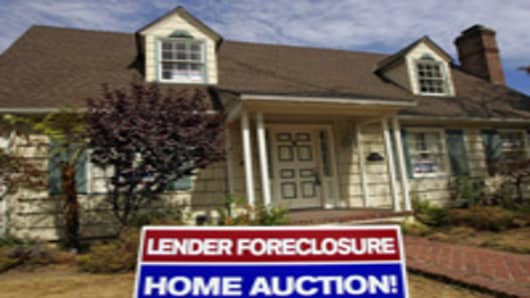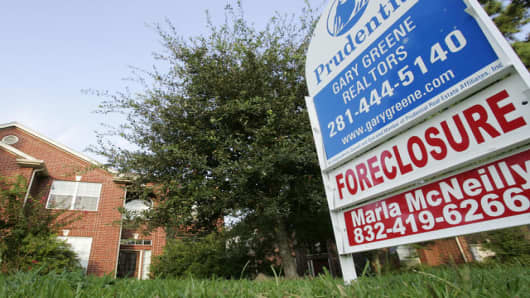How to buy
Buyers also should educate themselves on the three stages of foreclosure, as each has different rules.
The first phase is called preforeclosure, where investors buy directly from homeowners in the early stages of default – before the bank repossesses the property. (More: Winning a Home on a Short Sale)
“In an ideal scenario, there’s some equity left in the home so you are able to agree on a number that gives the homeowner a small profit and you a discounted purchase price,” said Sharga. “That’s a win-win situation.”
These days, however, with the advent of 100 percent financing, many homeowners in preforeclosure have no equity to speak of.
In those cases, the investor can potentially negotiate a short sale, in which the lender accepts less than what is due on the mortgage as full payment for the property.
The second phase of the process is where the lender, or bank, forecloses on the home and attempts to sell it at auction.
Typically, investors are unable to inspect the homes they bid on, leaving the condition of the property unknown.
They are also generally required to produce a 20 percent cash down payment the day of the auction, and pay the remaining balance on the home within 48 hours.
According to Andrew J. McLean, author of “Making Money on Foreclosures,” auctions are best left to professionals.
Average investors, he said, should focus instead on real estate owned, or REO, homes, the third stage of foreclosure.
“When the bank is unable to sell their foreclosures at auction they enter the REO stage, which is safer because you don’t have to deal with clearing the title, back taxes or any outstanding liens,” said McLean. “The bank has already done that for you.”
Buyers are also able to inspect the property in advance, which eliminates much of the risk.
And better yet, if buyers have good credit, the lender will often accept a lower 10 percent down payment, cover many of the closing costs and structure a loan with a favorable rate to help the investor renovate the property.
“Banks are anxious to get out from under these foreclosures,” said McLean. “They have to insure it and maintain it and it costs them money."
To find homes in any stage of foreclosure, buyers can visit their county courthouse, which maintains such documents as part of the public record.
Sites like RealtyTrac.com, foreclosuredeals.com and foreclosures.com also maintain a national database of foreclosure listings.
“This is a process that requires some work and requires some cash,” said Sharga. “It’s obviously not as easy as a traditional real estate transaction so buyers have to be diligent. It’s a numbers game at the end of the day.”



